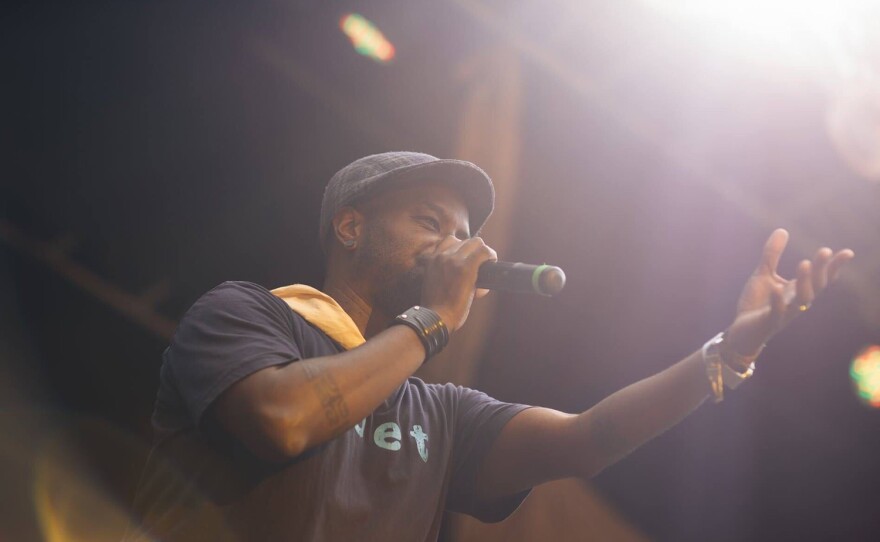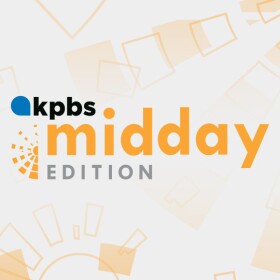"I don't remember much about my early schooling, but I do remember being fed information about our country's independence. It's one of the many American historical events that I was duty bound to memorize, be graded on and tested with.
I remember pledging allegiance even before I knew what that word meant, before I knew any other five-dollar word. I remember no more than two dollars in my pockets, long lines for free school meals.
You could always tell which kids had money by the condition of their character-themed lunchboxes and the individually wrapped contents of their grade-A snackage. Those were generational Twinkies they were flaunting."
Sotu premiered the work Thursday in partnership with the Central San Diego Black Chamber of Commerce, and the performance is available to watch on YouTube.
When he set out to write this work, Sotu knew he had to take it seriously, and that he bore a responsibility in being the face of any statement.
"They asked me to talk about the 4th of July as it pertained to how African Americans see it, but you know, we're not monolithic," he said. " So even though I did this for the San Diego Black Chamber of Commerce, I needed to make sure whatever I said was completely true in my case."
It's a hallmark of Sotu's work, he said, or the work of any spoken word artist for that matter — taking a platform or message and attempting to make something universal by first making it deeply personal.
So he started at the beginning, in a classroom, with the Pledge of Allegiance, which quickly spirals — in one breath — from the inequity of schoolyard snacks to silencing and brutality, religion, the settlers, and reparations. The poem is a dizzying, don't-miss-a-word mantra.
In being vulnerable, rather than trying to send a message through policy, education or protest, Sotu also knows that it takes the edge off and is more like breaking bread with someone who doesn't agree with you.
"My poem is about showing people that this is going on, showing people in a poetic way because sometimes it's an easier medicine to take down. This stuff is happening and you may not have realized it," Sotu said. There's value in a conversation and in telling someone what specifically has hurt specifically him, Sotu said.
"There's a vulnerability in art in the artist," he said. And when a poem is delivered to an audience, as much of spoken word poetry tends to be, there's an energy in the communal experience uncovered by vulnerability. "If you have ever felt this way, you're gonna nod your head, snap your fingers," Sotu said.
Sotu has had to adjust his expectations as his career has shifted online and the nodding heads and applause of the audiences he's performed to for twenty years have been relegated to the chat sections of Zoom calls.
But what is going on in the world right now distinctly shapes the stories he wants to tell. "It's not an us versus them, especially during this time of COVID, especially during this time of inequality. It's not an us versus them. It's all of us. We are all Americans," Sotu said. "The only difference is that you can see us coming. That's the crazy part. You can see us coming because of the color of our skin. I don't know who is my ally by the color of yours."
The poem ends with a welcoming, a reckoning and a simple call to action.
"This bandwagon that you have now decided to jump on has some rough roads ahead. But the beautiful people inside are beaming with hope, with direction, with love. We will not allow our crisis to determine our vision.
If you are gonna take this ride with us and I hope that you do, place whatever color hand you have over your heart and pledge allegiance to balance. Pledge allegiance to the Black-owned businesses.
We're not asking you to denounce our flag or our collective nation. We are simply asking for you to love our country better."







